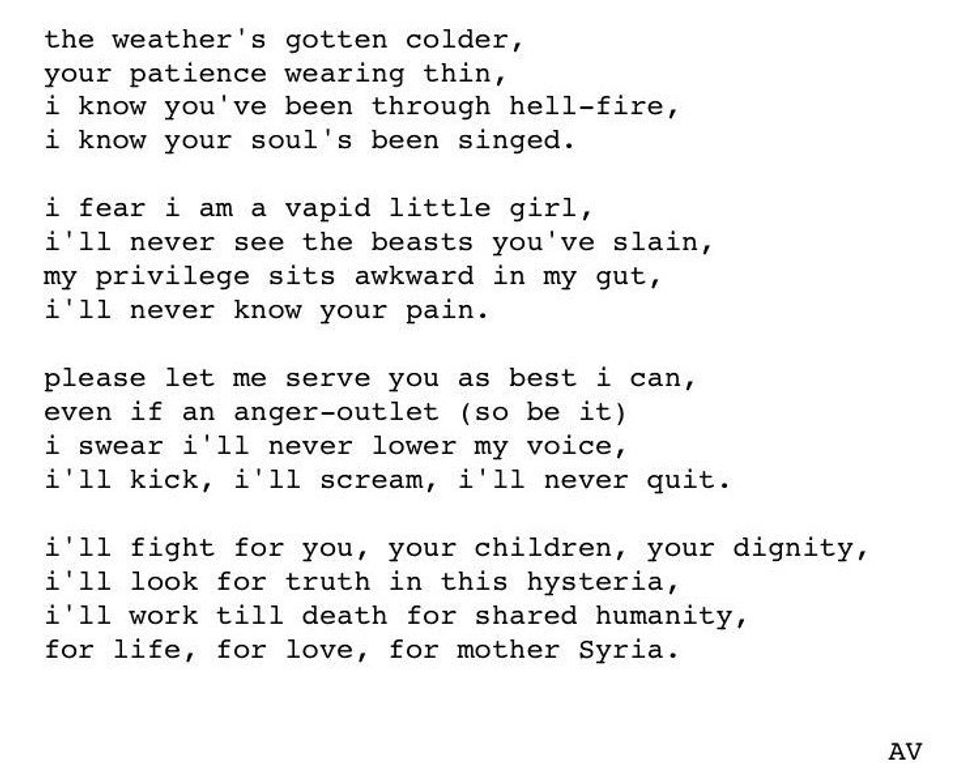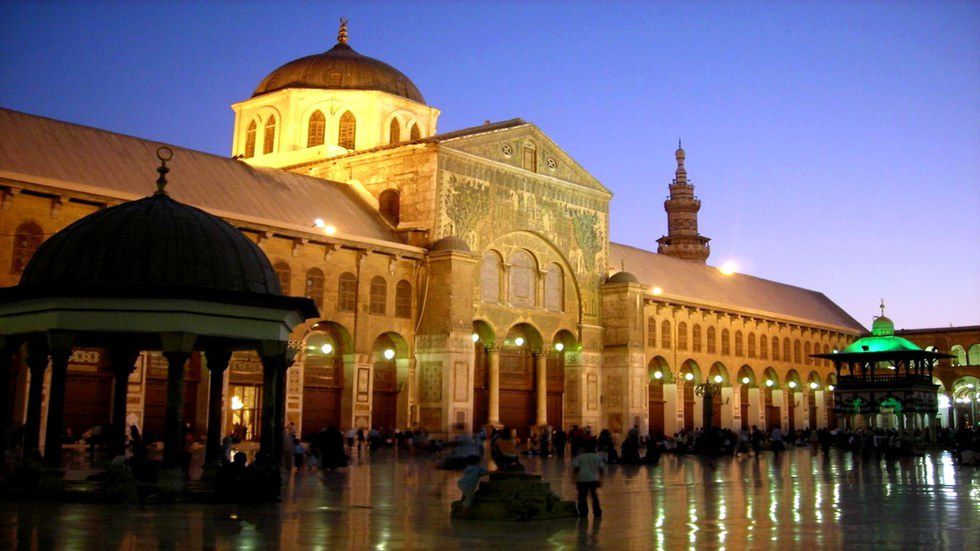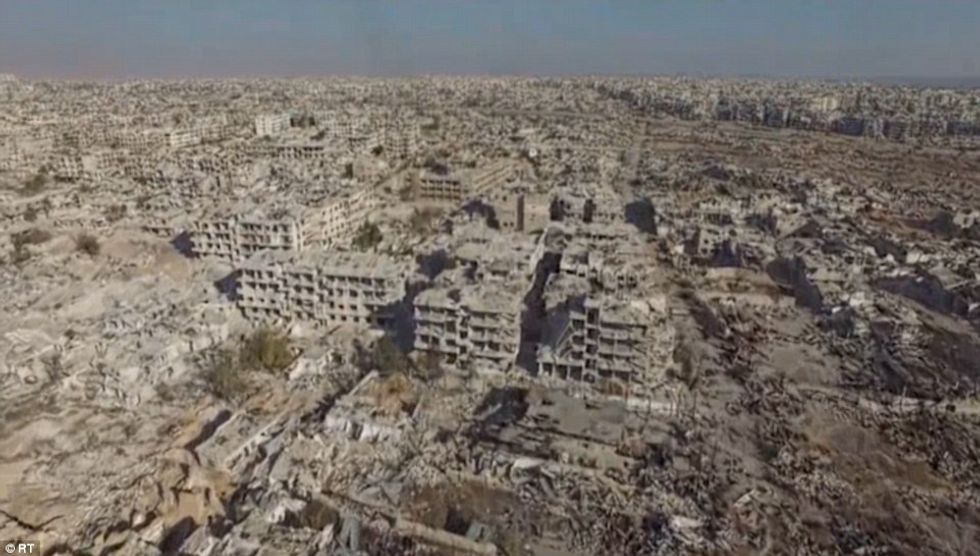I do not claim to be a political writer -- as I have said, I am a poet -- but here I am, working every day at a refugee camp, largely populated by Syrians, confronted with the ugliness of war and the ramifications of the displacement of human beings. We are bombarded with photos of the current state of Syria, so much to the point of it almost becoming desensitizing. Numb, or finding it too hard to look at, I can feel a collective eye shift away from the crisis. I understand to a certain extent that everyone lives largely in their own cities of thought, but this needs to be looked at head on. These are mothers, fathers, sisters, brothers; these are human beings with the same hopes and dreams and fears that you and your family have. It seems asinine that I have to repeat this again and again. When interviewed by a Swiss newspaper, the journalist asked me if the residents showered regularly. I, offended, was at a loss with the abrasive and unfounded question. A server at a restaurant at home remarked that he would send his daughter to a refugee camp only with a bodyguard. I have had enough of this ignorance.
I could rattle off the former jobs of my resident acquaintances: a chef, a poet, a teacher, a girl just one semester shy of an engineering degree, all itching in their idle at the camp. It does not feel right to have to plead for their humanity, for acknowledgement of their dignity. This should be understood.
Syria, specifically, though not the only country represented in the camp (Iraqis and Somalians live among the 700 also), was once a rich cultural heritage, with high mountains, beaches featured in tourist magazines, and bustling marketplaces. Ancient music, literature, and political ideology were born there. Since 2011, there have been 450,000 Syrian deaths, 50,000 of them being children. I have heard residents recount things they have seen, hell-fires I will never be able to fully comprehend.
Imagine losing the people closest to you, fleeing your home for your own life, only then to be herded like cattle and then placed in a purgatory, and wait to be able to restart. Many residents still have family in Syria. I will never take for granted again the knowledge that my family is safe at home, that I can call them whenever I want to. That is a luxury.
This article likely comes across scattered and vague. I am at a loss for words lately -- conditions at camp and what I read in the news can be fatiguing. I suppose it is a plea, to recognize the potentiality of this happening anywhere, and the absolute necessity for coming together in a shared humanity. This devastation is no longer political unrest playing in the background on a television. This is a disaster; I will not tolerate debate on the value of a human life.
Do not sleep through the crumbling of one of the oldest civilizations in this world. This could be you and yours, but most of all, it is us. I encourage you to dismantle your notion of otherness, whether it be rooted in religious difference or simple disregard.
Click here to donate to Ritsona refugee camp directly.
Damascus, Syria, four years ago.
Damascus, Syria, one year ago.
























